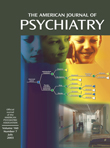Burdens and Benefits of Placebos in Antidepressant Clinical Trials: A Decision and Cost-Effectiveness Analysis
Abstract
OBJECTIVE: The use of placebos is a necessary, if controversial, part of determining the efficacy of new antidepressants in randomized clinical trials. Such studies need to convey accurate and useful risk-benefit information to subjects since effective treatments are withheld. The authors assessed the cost-effectiveness of entering such a trial from the perspective of potential subjects. METHOD: The choice between individualized psychiatric treatment and an 8-week placebo-controlled, randomized clinical trial was modeled by using a static model. The analysis was conducted from the perspective of a potential subject who has moderate depression, is at low risk for suicide, has no comorbid conditions, and lacks adequate insurance to pay for mental health services. The trial was assumed to be free for subjects, except for indirect costs. Model outcomes included the probability of treatment response at 8 weeks and “decremental” cost-effectiveness. Data were based on reviews of published and some unpublished clinical trials of novel antidepressants that were eventually shown to be efficacious. RESULTS: A participant in a typical antidepressant efficacy trial has a chance of treatment response almost 25% less than that with individualized treatment. An uninsured participant can expect to save just over $164 for every 10% chance of response sacrificed by entering the placebo-controlled trial. CONCLUSIONS: For placebo-controlled antidepressant trials, it is possible to derive systematic and evidence-based estimates of the burdens and potential benefits to subjects. Such information may be more useful for institutional review boards and potential subjects than an unstructured enumeration of risks and benefits.



